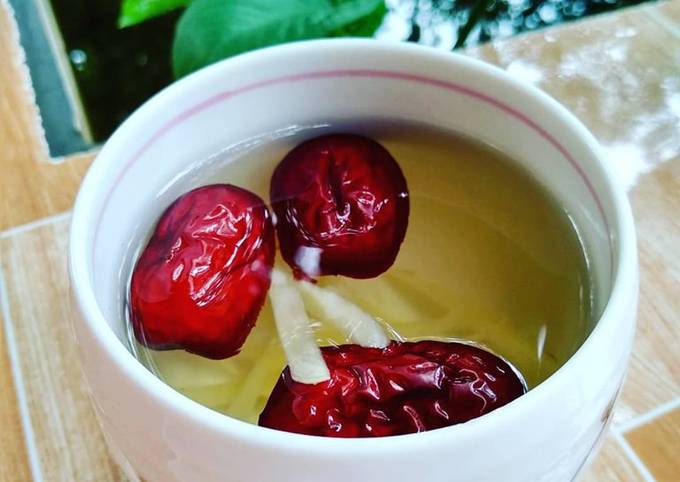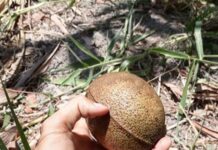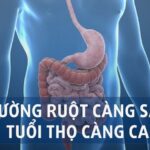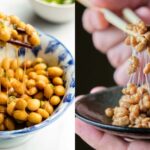Detoxification
In Traditional Chinese Medicine, the body’s inability to eliminate toxins can lead to concerning symptoms such as halitosis, constipation, acne, yellow tongue, gum swelling, red eyes, and mouth ulcers. These signs indicate a stagnation of qi in our liver.
Hawthorn berries are a nutrient-rich food, providing protein, fat, sugar, organic acids, and vitamins A and C, along with a small amount of calcium and essential amino acids. In traditional herbal medicine, hawthorn berries are considered a precious ingredient with analgesic, sedative, and blood-boosting properties. Apart from liver protection, they help increase serum protein levels, contributing to the detoxification process in the liver.
Ginger is also renowned for its detoxifying properties, warming the body and reducing nausea. Notably, ginger can detoxify seafood like fish and crab. Combining hawthorn berries and ginger creates an effective cleansing formula, offering superior health benefits.

Combining Hawthorn Berries and Ginger for Effective Cleansing and Enhanced Health Benefits
Weight Loss
A 100-gram serving of hawthorn berries provides up to 10 grams of fiber, equivalent to about 30% of the recommended daily fiber intake. Drinking hawthorn berry tea helps individuals feel fuller for longer while reducing cravings, effectively supporting weight loss. Additionally, extracts from hawthorn berries improve constipation, reduce bloating, and contribute to a slimmer waistline.
For those with obesity in the form of edema, where the body retains water, hawthorn berry tea can promote water metabolism, aiding weight loss in these cases.
Ginger is a natural remedy with gingerol as its main component. It promotes blood vessel dilation, enhances blood circulation, and opens pores, aiding the removal of excess heat from the body. Thus, ginger plays a significant role in effective weight loss.

Drinking Hawthorn Berry Tea Curbs Cravings and Supports Effective Weight Loss
Regulating Digestive Functions with Ginger and Hawthorn Berries
In the book “Four Generations of Chinese Traditional Medicine Using Food Instead of Medicine,” author Chen Yunbin, a renowned expert in dietary therapy and traditional Chinese health practices, points out that ginger and hawthorn berries are often combined in Chinese herbal remedies. Ginger warms the spleen and stomach, while hawthorn berries replenish the body’s qi. This combination positively regulates common summer digestive issues such as loss of appetite, gastrointestinal discomfort, and diarrhea.
Notably, after a flu infection, many individuals experience nausea, a desire to vomit, and a loss of appetite. Drinking a cup of ginger tea infused with hawthorn berries can soothe these discomforts, providing comfort and improving one’s appetite. This natural combination not only promotes digestion but also aids the body’s recovery after illness.
Boosting Immunity with Ginger and Hawthorn Berry Tea
In his book, Chen Yunbin recommends drinking ginger and hawthorn berry tea at the beginning of summer to enhance the body’s resistance and reduce the risk of illness.
According to Dr. Wu Mingzhu, a traditional Chinese medicine practitioner, hawthorn berries not only nourish the blood but also calm the mind and support the health of the spleen, liver, and stomach. These benefits significantly enhance immune function and contribute to cartilage repair and recovery. This combination not only helps fight diseases but also makes individuals feel healthier and more stable.

The Combination of Ginger and Hawthorn Berries Fights Diseases and Promotes a Healthy, Stable Feeling
Precautions When Using Ginger and Hawthorn Berry Tea
When incorporating ginger and hawthorn berry tea into your daily diet, there are a few points to consider. This beverage is particularly suitable for individuals with a cold body constitution, meaning those who frequently feel cold, have cold hands and feet, and are prone to pain in certain areas like the abdomen or legs. Drinking ginger and hawthorn berry tea every morning can improve these conditions.
However, if you do not fall into the cold body constitution category, it is best to avoid daily consumption of this tea throughout the year. The ideal time to enjoy it is in the morning, and you should finish drinking it before lunchtime, as afternoon or evening consumption may disrupt your sleep.
For those with yin deficiency symptoms, such as red lips, dry mouth, or stomach discomfort, ginger and hawthorn berry tea is not recommended, as it may cause phlegm and heat in the body. Additionally, if you have mouth ulcers or a sore throat, refrain from drinking this tea.
Pregnant women in their third trimester, individuals with acute skin conditions like dermatitis or eczema, and those with unhealed wounds should also stay away from ginger and hawthorn berry tea to ensure their well-being.
The 5 Best Fat-Burning Beverages for Rapid Weight Loss and a Slimmer Waistline
“For effective weight loss, it is crucial to adopt a mindful approach to calorie intake. Instead of resorting to extreme measures, such as drastically cutting down on calories or surviving solely on juice cleanses and water, it is imperative to strike a balance. A well-rounded approach involves a mindful diet, comprising nutritious foods and adequate hydration, which ultimately results in sustainable weight loss and improved overall health.”







































